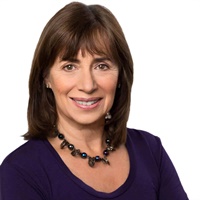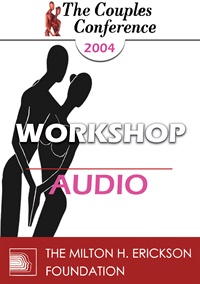CC04 Workshop 01 - Confrontation: Being Gentle and Being Tough - Ellyn Bader, PhD
- Average Rating:
- Not yet rated
- Topic Areas:
- Workshops | Confrontation | Therapist Techniques
- Categories:
- Couples Conference | Couples Conference 2004 | Pioneers in Couples and Family Therapy
- Faculty:
- Ellyn Bader, PhD
- Duration:
- 1:32:12
- Format:
- Audio Only
- Original Program Date:
- Mar 26, 2004
- License:
- Never Expires.
Description
Description: Exploration of the art of confrontation in couples therapy, balancing empathy and directness. Bader outlines six confrontation styles and shares strategies for addressing issues like addiction, trust, and conflict avoidance. Through video examples and case studies, she demonstrates how therapists can navigate complex dynamics—considering culture, gender, and individual histories—while helping clients confront passivity, express motivations, and take responsibility for change.
Syllabus Description: Couples therapy with challenging partners is a therapy of confrontation. You must be proficient at the nuances of gentle and forceful, but effective confrontation. You must oversee and control the confrontation between your clients, to ensure that it remains productive and positive. Learn to confront the partners, help partners confront each other, and manage yourself when they challenge you.
Educational Objectives:
- To name five problems that make a committed partnership untenable.
- To describe six types of confrontation.
*Sessions may be edited for content and to preserve confidentiality*
Credits
Handouts
| Timestamped Transcript (726.8 KB) | 15 Pages | Available after Purchase |
| Timestamped Transcript (965.7 KB) | 23 Pages | Available after Purchase |
| Ericksonian Learning Snapshot (247.5 KB) | 2 Pages | Available after Purchase |
Faculty

Ellyn Bader, PhD Related Seminars and Products
Ellyn Bader, PhD, is a founder and director of The Couples Institute in Menlo Park, California. As a clinical psychologist, workshop leader, author, and speaker, she is dedicated to helping couples create extraordinary relationships. Over the past 30 years she has trained therapists in couples therapy throughout the United States as well as Europe, Asia, South America, and Australia. She served as a Clinical Faculty in Stanford University School of Medicine for 8 years.


